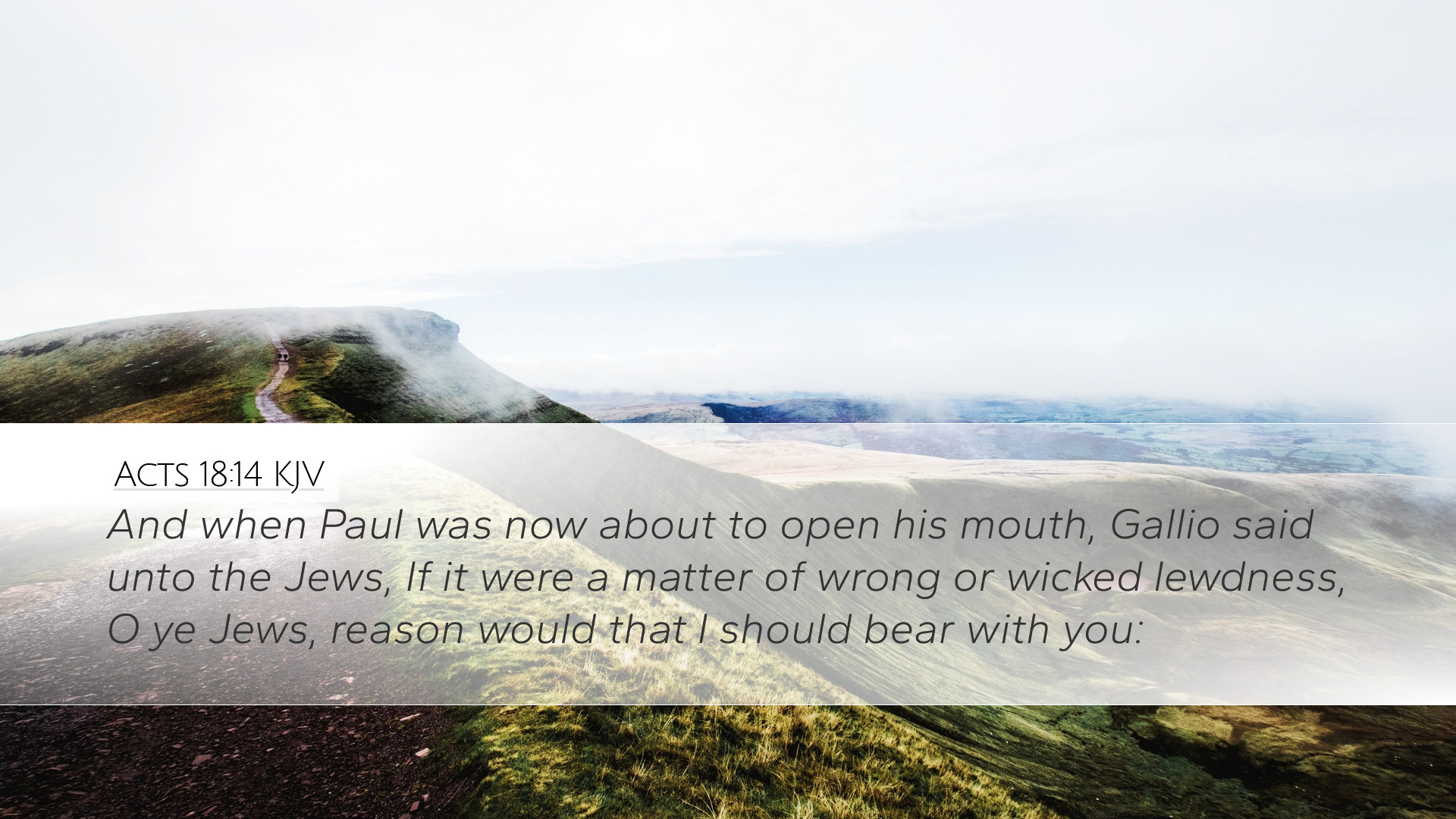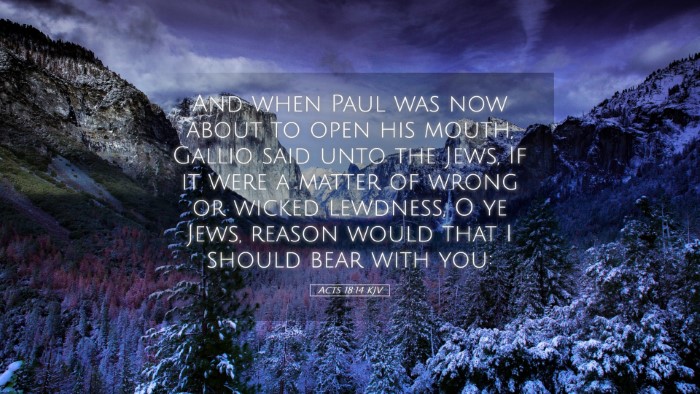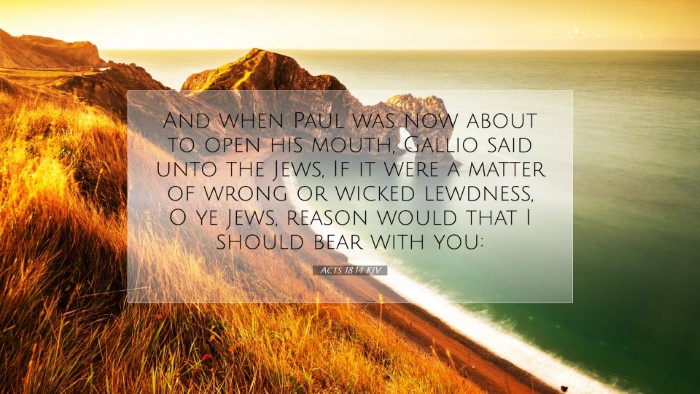Commentary on Acts 18:14
Bible Verse: Acts 18:14 - "But just as Paul was about to speak, Gallio said to them, 'If you Jews were making a complaint about some misdemeanor or serious crime, it would be reasonable for me to listen to you.'"
Introduction
The passage of Acts 18:14 offers a fascinating glimpse into the early Church's interaction with the secular authorities of the day. Understanding Gallio’s response to the complaints brought against the Apostle Paul provides significant insight into the socio-political context of the early Christian movement and the nature of the accusations levied against the followers of Christ.
Contextual Background
The events surrounding Acts 18 unfold primarily in Corinth, where Paul was ministering. The tension between the early Christians and Jewish communities is palpable. The Jewish leaders sought to silence Paul's preaching, which they viewed as a threat to their traditions and authority. Gallio, the proconsul of Achaia, enters into this narrative as a critical figure in this legal and religious dispute.
Exegesis and Analysis
In this verse, we see Paul’s moment of potential defense curtailed by Gallio’s preemptive remarks. This action can be unpacked in several important ways:
-
Gallio’s Judicial Character:
Gallio’s response reveals his character as a ruler who prioritizes justice over sectarian disputes. His dismissal of the case indicates a lack of interest in religious controversies that do not pertain to civil law. Matthew Henry notes that Gallio was not concerned with Jewish religious matters unless they escalated to a civil disturbance.
-
The Nature of the Accusation:
The complaint against Paul was rooted in theological disagreements rather than legal offenses. Adam Clarke comments that the accusation was an attempt to define Christianity as seditious or unlawful, which did not hold up under Gallio's scrutiny.
-
Impact on Christian Evangelism:
This moment is pivotal for Paul and the spread of early Christianity. With Gallio’s protection, Paul could continue his mission without the fear of unjust legal repercussions. Albert Barnes emphasizes the significance of this event in legitimizing Paul's ministry and allowing him to preach the Gospel without hindrance.
Theological Implications
Acts 18:14 illustrates the complex interplay between faith and governance. It raises several theological themes worthy of exploration:
-
The Sovereignty of God:
This incident showcases God's sovereign hand over the Church, orchestrating circumstances that enable the proliferation of the Gospel amidst opposition. The apparent indifference of Gallio serves a greater divine purpose.
-
Response to Opposition:
Paul's experience exemplifies a model for believers facing opposition. Instead of engaging in contentious debate or defense, Christians may find encouragement in the principle that the truth of the Gospel often needs no earthly defense.
-
The Role of Authorities:
Gallio’s indifference may reflect a broader societal principle regarding the role of secular authorities in matters of faith. While the Church should respect governing authorities, the Gospel must take precedence in the expression of faith.
Practical Applications
The lessons from Acts 18:14 can be pertinent for today’s pastors, theologians, and laypeople in various contexts:
-
Discerning Priorities:
Believers today must discern what constitutes a matter worthy of engagement and where to apply their energies. This episode encourages a focus on the core message of the Gospel rather than getting embroiled in disputes that detract from its truth.
-
Embracing Courage:
Similar to Paul, Christians are called to remain steadfast amidst trials. Practical faith embodies courage in the face of opposition, trusting God’s plans and protection.
-
Engagement with Culture:
Understanding the context and methodologies of civil authorities can equip Christians for effective engagement in societal matters, advocating for justice while remaining true to their spiritual convictions.
Conclusion
Acts 18:14 is a multifaceted verse that encapsulates the early Church’s challenges and triumphs in the face of adversity. By reflecting on Gallio’s role and the implications of his words, we gain deeper insight into how the early Christians navigated their faith amidst secular challenges. This account serves as both a historical reference and a lasting encouragement for contemporary believers to champion the truth of the Gospel with boldness and wisdom.


